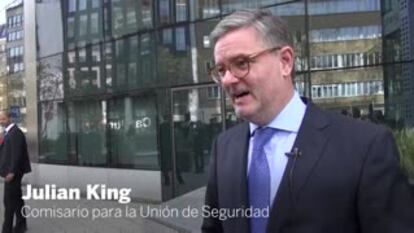Europeans act together against terrorism
A common threat demands a common response. We will continue to act against a constantly evolving threat

Three months on from the horrific attacks in Barcelona and Cambrils, Europe stands in solidarity with the families and communities who grieve.
These were not just attacks on one country, but on the values that we all share as Europeans; nationals of 34 different countries were killed or injured.
A common threat demands a common response. We have reinforced the exchange of information between police services. There has been a 40% rise in checks on the Schengen Information System; we have proposed to make it compulsory to create an alert on the System in cases related to terrorist offenses. Europol’s dedicated counter-terrorism center also provides operational support following terrorist attacks.
We have reinforced external border controls. New legislation on passenger name records allows checks on the movements of those flying within Europe. The new European Border and Coast Guard can now deploy its pool of 1,500 border guards without delay whenever support is needed. Since last April, every person crossing the external border is systematically checked against security databases. We’ve also proposed a system to register the entry and exit from European territory of non-EU nationals.
We will continue to act against a constantly evolving threat. Recent attacks in Nice, Berlin, London and Barcelona have targeted public spaces, often using “low-tech” means such as truck ramming. The Commission has put forward an action plan including €120 million in EU funding to help cities and regions better protect these spaces, while fully respecting their open and public nature.
We are reviewing the EU legislation that limits access to the ingredients used to make TATP [Triacetone Triperoxide ] – a weapon of choice for Da’esh, which the Barcelona attacker may also have been seeking to use. In the meantime, we have asked member states to ensure they implement existing EU rules properly – and I know this is an area where Spain has been working to toughen up its national controls.
Recent EU laws also give victims of terrorism rights, wherever they are in the EU. Those victims will often need support: from medical or psychological services, to legal assistance or help with pursuing compensation claims.
We should also tackle this problem at its root: the radicalization to poisonous ideologies that incites people to terrorism and murder. It is often people on the frontline, such as teachers, probation officers and social services, who are best place to spot the warning signs of radicalization; and who have the resources and relationships to do something about it. The EU's radicalization awareness network can help and support them, allowing practitioners from across Europe to share their experience and expertise. In the coming weeks we will present recommendations on the fight against radicalization, particularly in prisons.
We are also working with internet companies so that terrorist content doesn’t appear on their platforms, or is removed immediately. Voluntary action is the preferred option for everybody; and arguably also the quickest. But the Commission stands ready to look at legislation early next year if efforts are falling short.
Sadly zero risk does not exist when it comes to security. But we can make it harder and harder for terrorists to act. The EU will continue to pursue its action in this sense, supporting the national authorities who remain on the front line.
Julian King is European Commissioner for the Security Union.